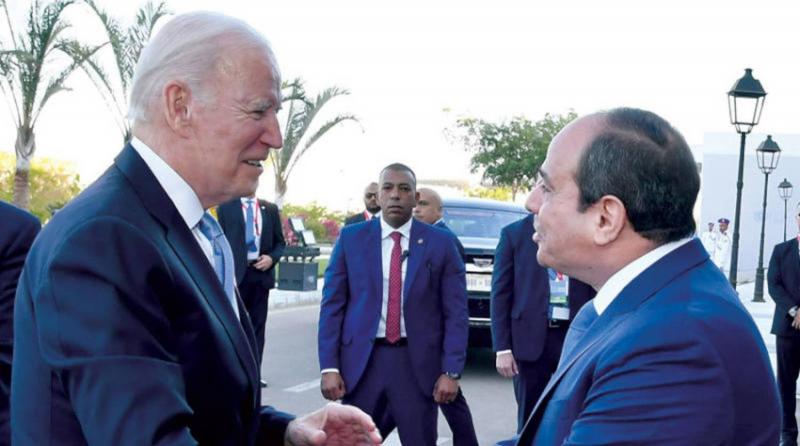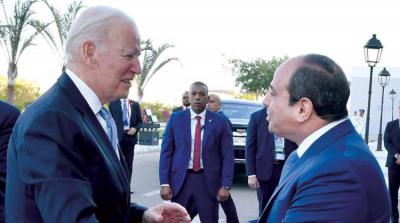U.S. President Joe Biden announced an agreement with Egyptian President Abdel Fattah El-Sisi to open the Rafah border crossing with Gaza and allow the entry of an initial batch of humanitarian aid trucks into the region. Biden stated to reporters after a phone call with his Egyptian counterpart aboard Air Force One while returning from a visit to Israel, where he expressed solidarity with Israel following the Hamas attacks on October 7, that Sisi "agreed... to allow the passage of up to 20 trucks as a start." He added, during a stop in Germany on the way back to Washington, that these trucks would likely not cross before Friday as the road around the crossing needs repairs. He clarified that the United Nations would distribute this aid within the Gaza Strip, noting that the entry of a second batch depends on "how things go." The U.S. President warned Hamas, which controls the Gaza Strip, that if it "takes over (the aid) or prevents its passage... it will end."
In Cairo, a statement from the Egyptian presidency indicated that Sisi discussed with Biden ways to facilitate the urgent access of "humanitarian aid to Gaza." The statement mentioned that the relevant authorities in both countries are coordinating with international humanitarian organizations under the supervision of the United Nations to ensure the arrival of aid, agreeing to sustainably introduce humanitarian assistance to the sector through the Rafah crossing. The White House noted that Biden and Sisi agreed to work closely to encourage a "swift and strong" response to a humanitarian appeal issued by the United Nations related to the conflict between Israel and Hamas. The two presidents also agreed on the need to maintain stability in the Middle East and prevent the escalation of the conflict, as well as reiterating their commitment to the strategic partnership between their countries.




